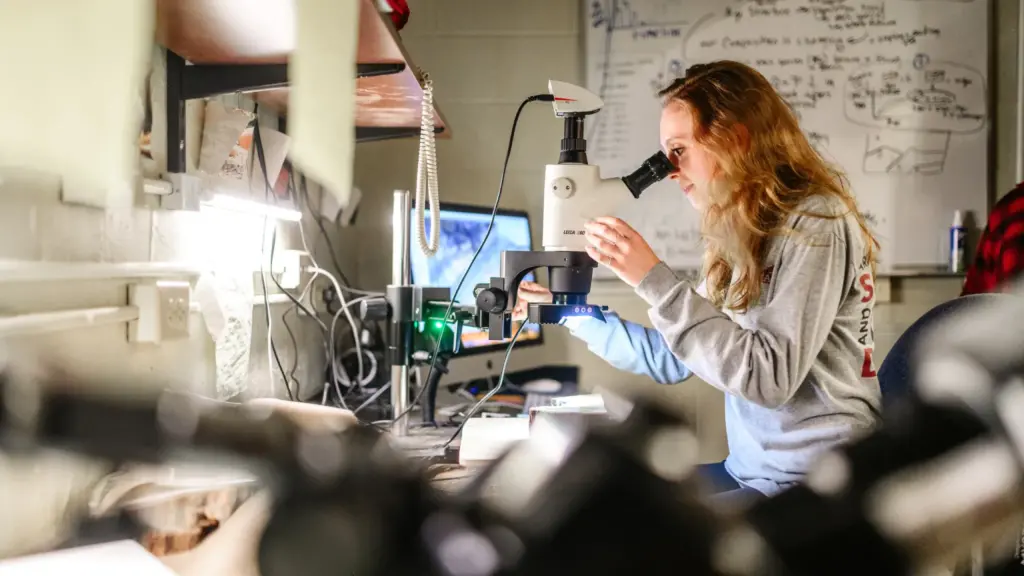Overview
- Degree Level
- Undergraduate
- Degrees Offered
- Bachelor of Arts
- school/college
- College of Arts and Sciences

Arcadia University has an accelerated, combined plan with Salus University (formerly the Pennsylvania College of Optometry) that allows students to complete a Doctor of Optometry degree in seven years.
During the first three years students study at Arcadia University, taking basic courses in the physical and biological sciences. The nationally standardized Optometry Aptitude Test (OAT) is taken during the fall of the third year. The score on this test, as well as the rest of the students’ academic credentials, are submitted to a joint Arcadia-Salus committee. Salus reserves a minimum of four places yearly for Arcadia students. Upon selection, students enroll the following year at Salus.
Arcadia University awards a Bachelor of Arts in Interdisciplinary Science after completion of a student’s first year at Salus. After completion of the four years of professional study there, Salus awards a Doctor of Optometry degree.
Because the Pre-Optometry program is highly structured, studying abroad normally entails adding a year of study. Students interested in this option consult with the adviser as soon as possible.
Required Course
Learn principles of weak chemical interactions applied to the structure and function of macromolecules, especially proteins, and study non-covalent binding of substrates and enzymic catalysis are treated both conceptually and quantitatively, as well as mechanisms of metabolic control, including allosterism and covalent modification, are related to protein structure.
Required Course
Explore of the functioning systems of the human organism, emphasizing mechanisms governing the function of each tissue type as part of the whole organ, and it examines various systems in the laboratory using a variety of experimental techniques.
Required Course
Study cell structure and function at the molecular level encompassing enzymes, membranes, respiration, protein targeting, intracellular trafficking, information transfer and storage. The laboratory emphasizes modern biochemical and molecular techniques.

This website uses cookies so that we can provide you with the best user experience possible. Cookie information is stored in your browser and performs functions such as recognizing you when you return to our website and helping our team to understand which sections of the website you find most interesting and useful.
Strictly Necessary Cookie should be enabled at all times so that we can save your preferences for cookie settings.
If you disable this cookie, we will not be able to save your preferences. This means that every time you visit this website you will need to enable or disable cookies again.